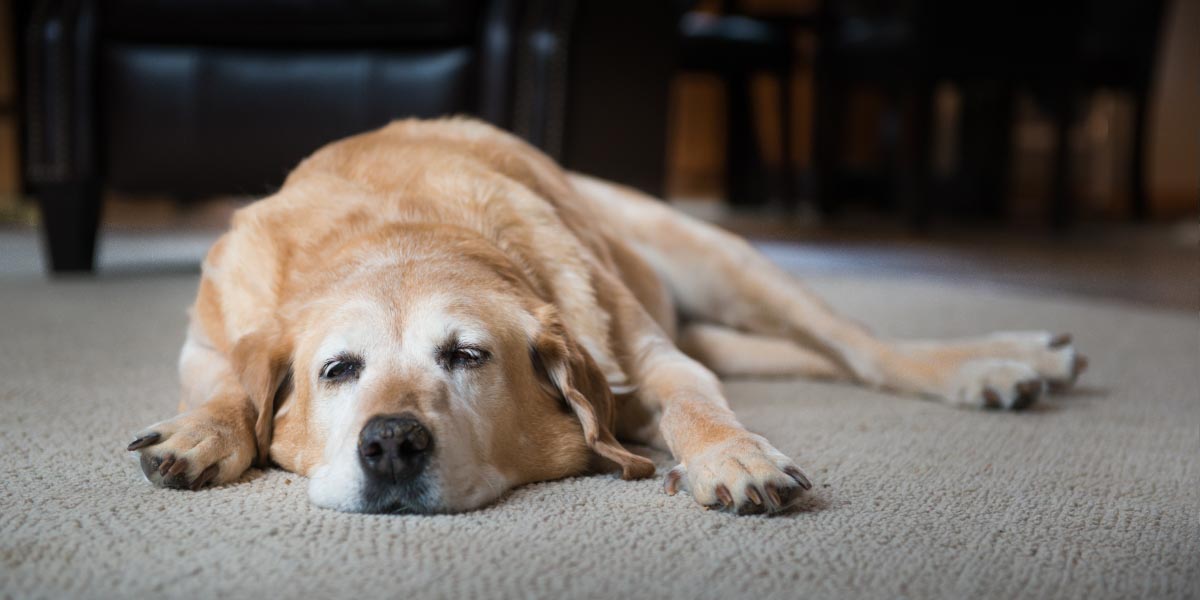The life span of our pets is determined by their genes, diet, activity level and medical history. Generally, larger breeds reach the senior time of their life earlier than smaller breeds.
What are the signs of ageing?
The signs of ageing can creep up slowly, over a number of years, and may not be apparent until you see a change in your dog or cat’s behaviour or health. Signs of ageing to look out for are:
Weight gain
Loss of hearing
Poor eye sight
Long sleep patterns
Being less active
Weight loss
Graying of the hair
Joint stiffness / problems
Dental problems

Keep your pets active
Senior pets still require daily exercise, but to a lesser extent than when they were adults. This may mean limiting the amount of exercise your pet receives – some seniors just don’t know when to stop! Try to create different ways to exercise your pet, such as hydrotherapy for dogs, activity toys, food games, walking your dog on a recall lead and daily training.
Provide a comfortable home
‘Senior proofing’ your house and garden can help your pet to be more comfortable at home. Placing a mat or rug over laminate or wooden flooring can help elderly pets walk safely and comfortably around the house. Senior pets may find it gets increasingly hard to walk up and down steps. Introducing a ramp can help their mobility. Baby gates can be placed around the home to stop senior pets going upstairs or into areas of the house that are no longer suitable for them.
Author: STUART EDGAR
OSCAR Pet Foods Carlisle offer a wide range of foods for dogs, cats in order to cater for your pet's needs throughout their lives. Diets include grain free, gluten free, weight control and joint care support. Contact Stuart Edgar on 01228 658143 or Mobile: 07486 457 237, or visit www.oscar.co.uk for more information.






